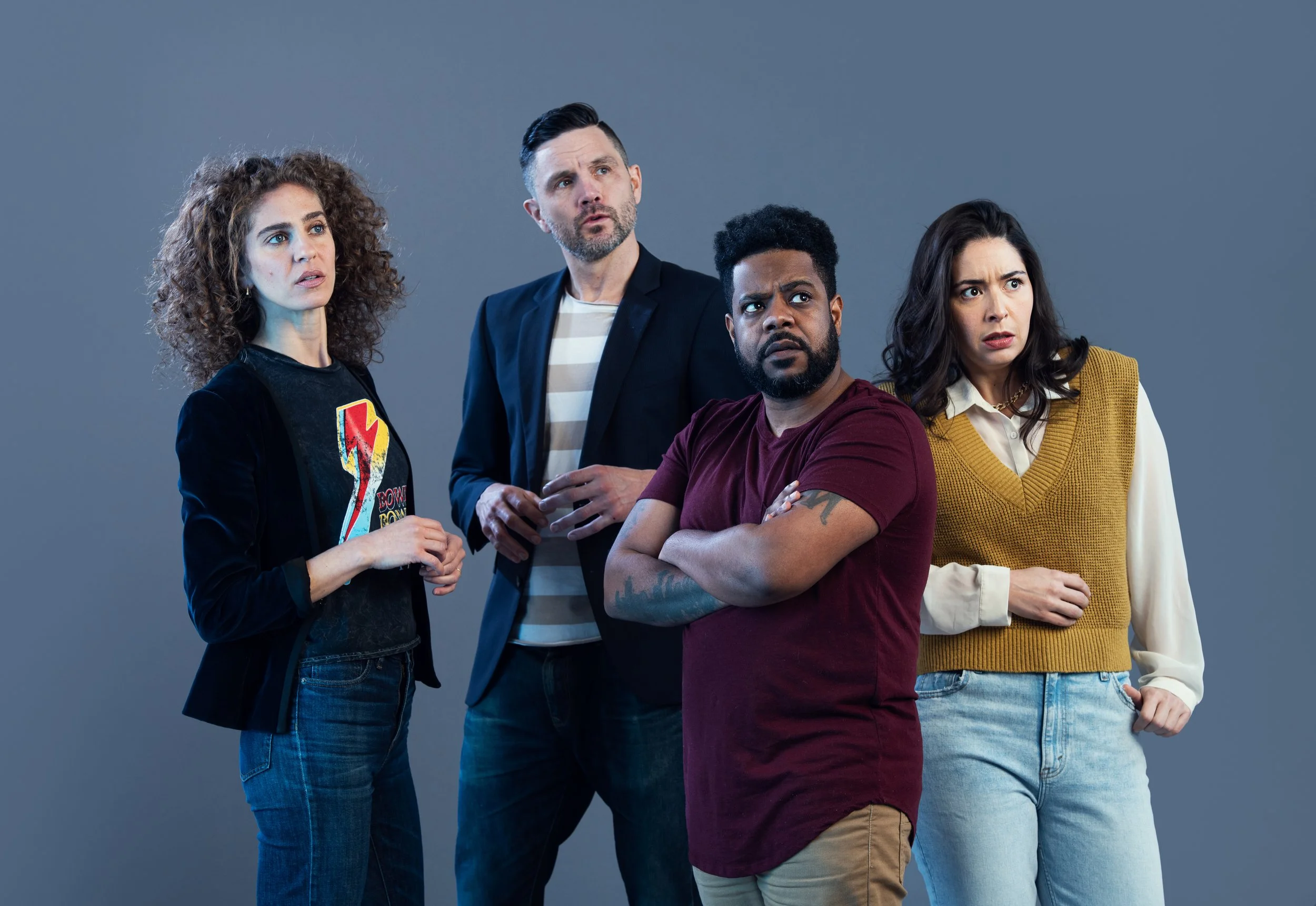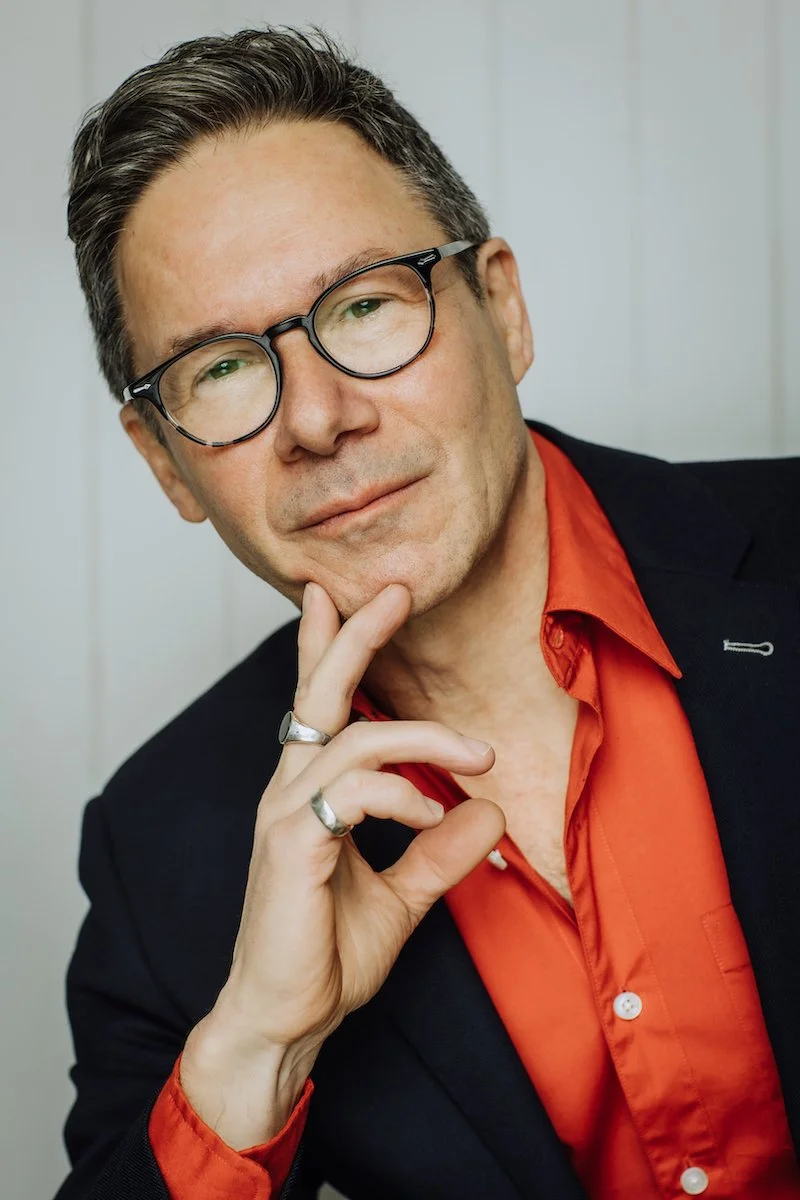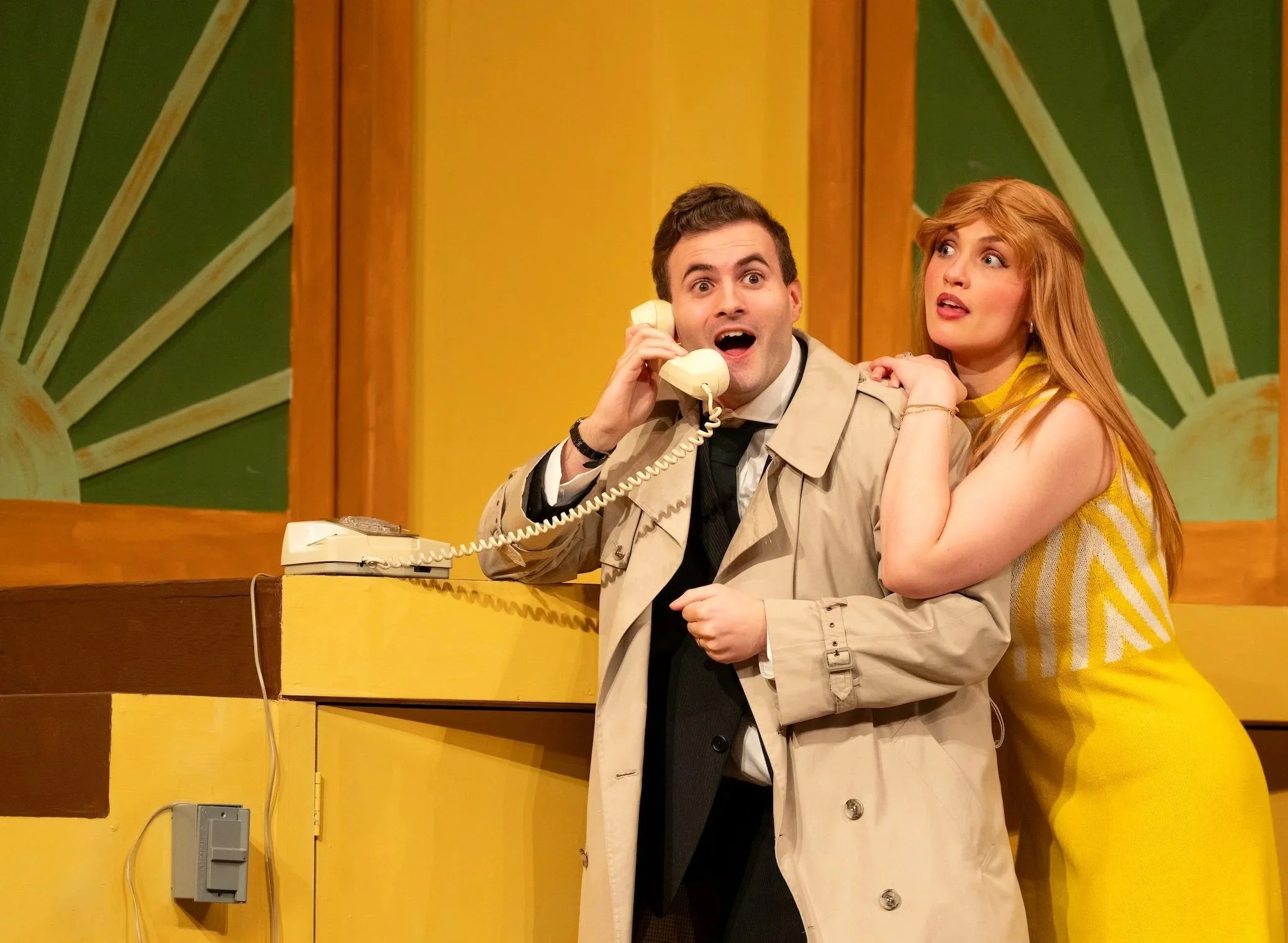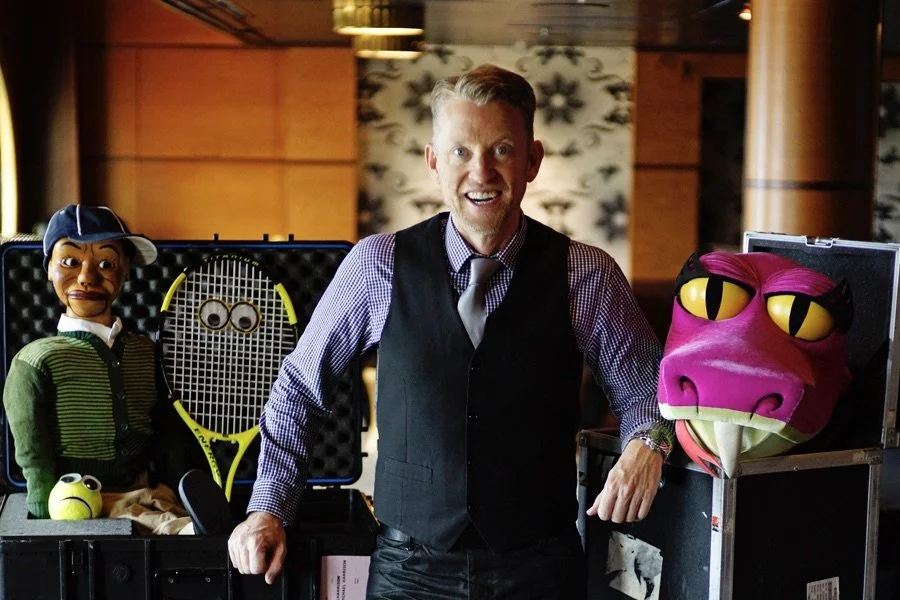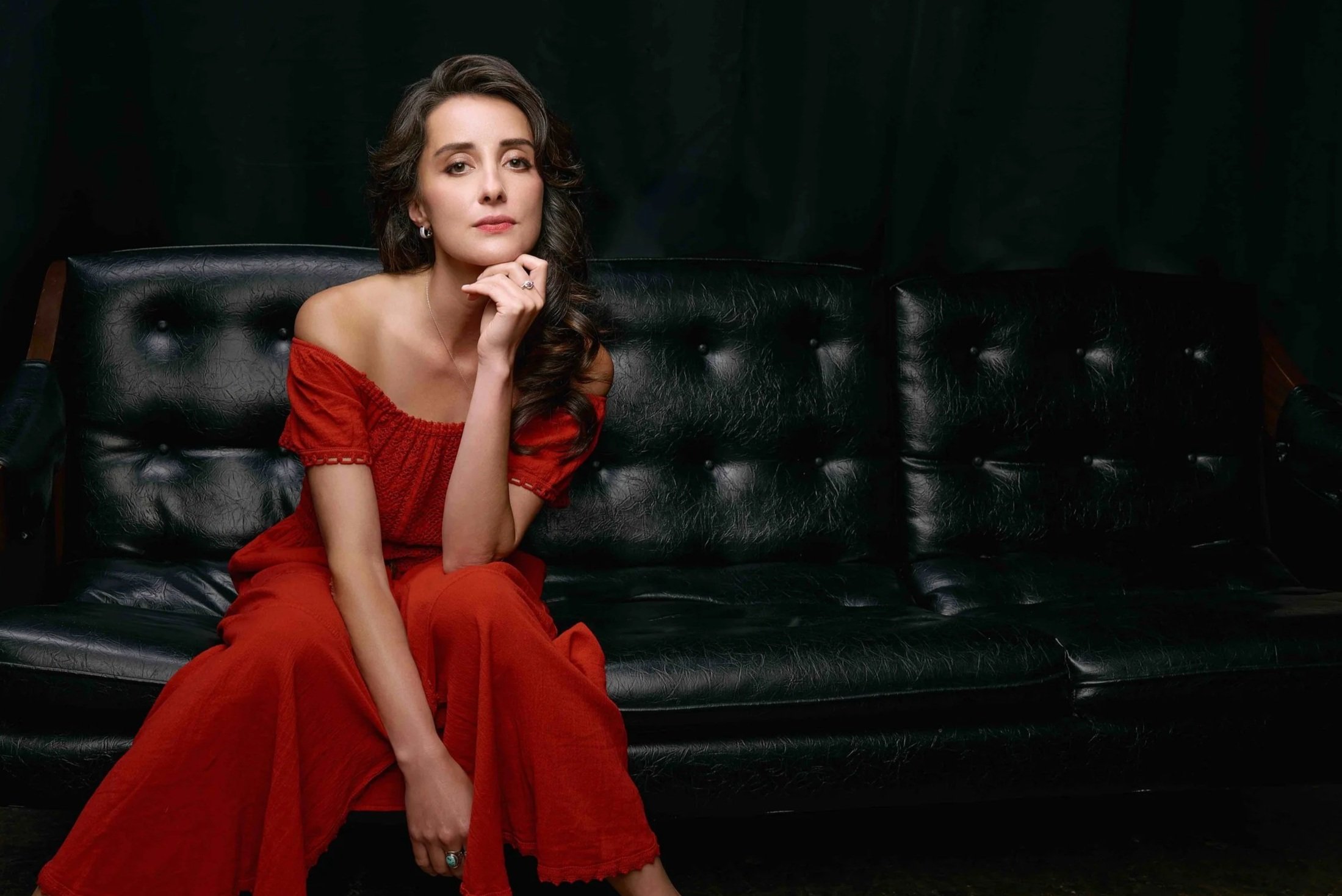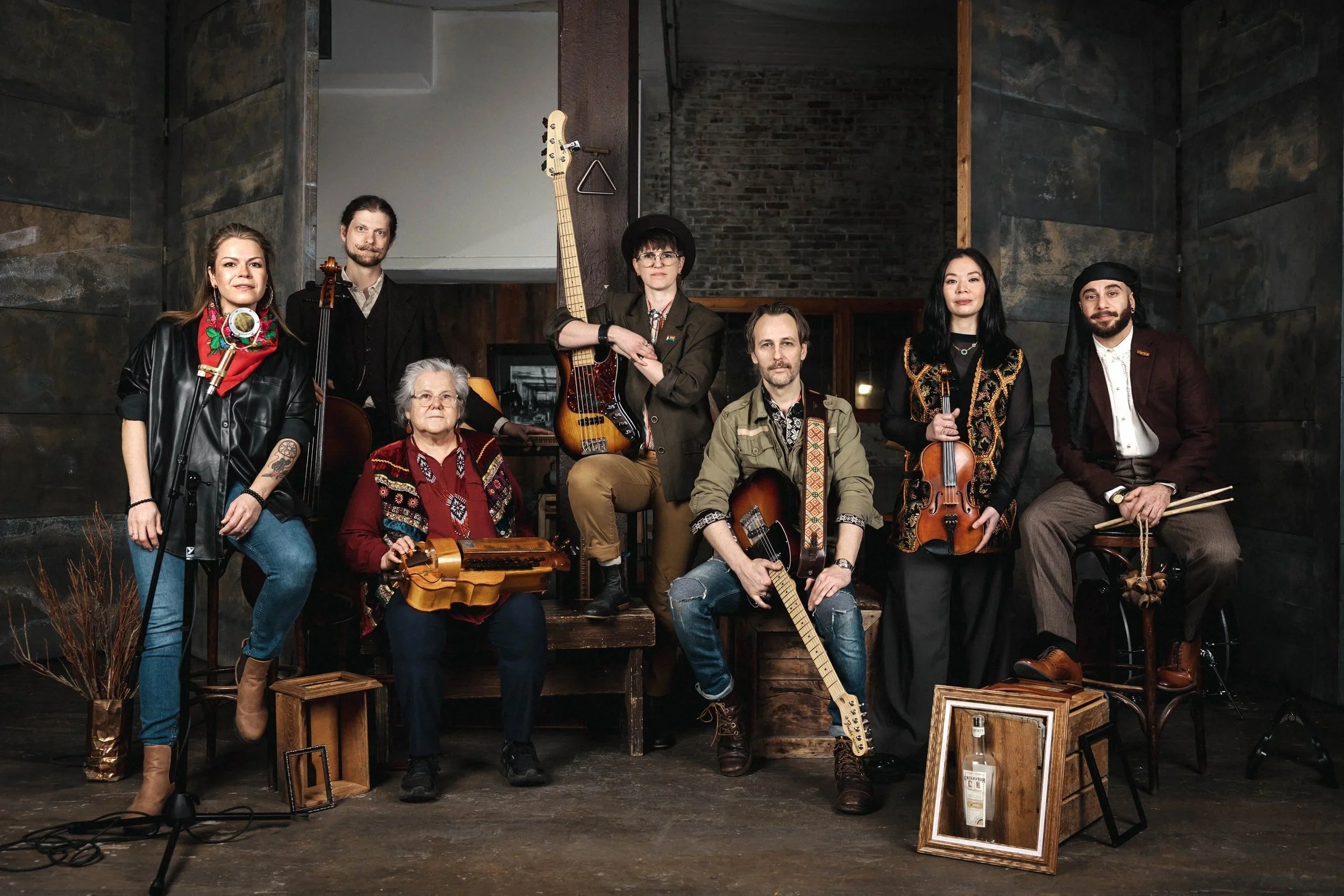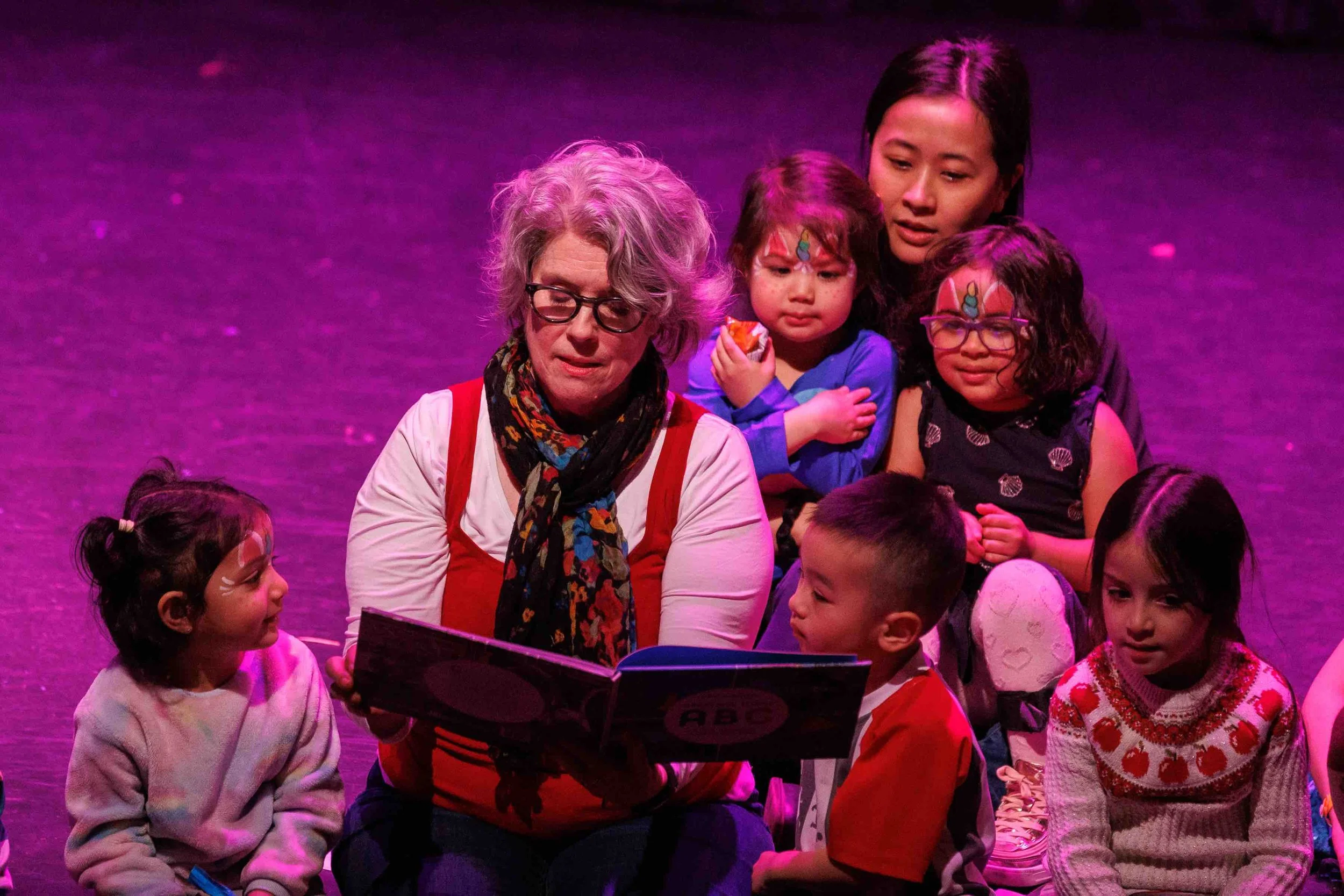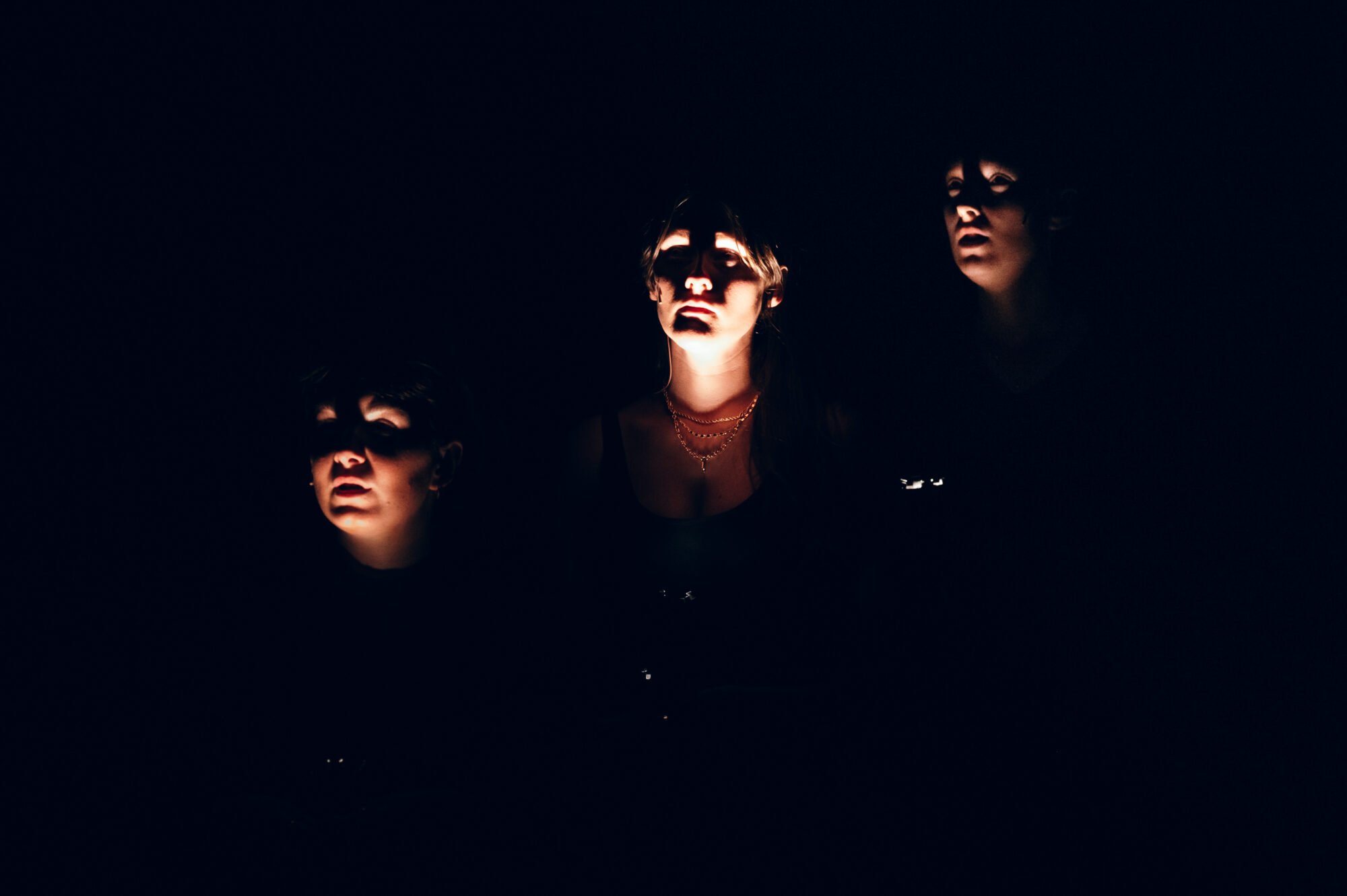Stir Q&A: Pi Theatre's Truth & Lies explores post-truth era through short plays and virtual reality
Inspired by Othello, the Vancouver company’s season-closing performance directed by Richard Wolfe dives deep into the digital realm
Truth & Lies.
Pi Theatre presents Truth & Lies from June 22 to 25 at the Lou Henley Rehearsal Hall in the Vancouver Opera Production Centre
ONE ONLY NEEDS Donald Trump back on the campaign trail to be reminded of the post-truth era. A new production by Pi Theatre looks at tensions and yearnings that come up in a world where digital reality and real life collide, a place full of questionable realities and messages crafted for personal and political gain.
Conceived and directed by Pi Theatre’s artistic director Richard Wolfe, Truth & Lies is a collection of four works: three short plays and a virtual reality (VR) experience for viewing at the show or at home. Each piece uses the same four actors and creative team.
The lineup features QAmom by Sebastien Archibald, which explores, among other things, a seemingly innocuous online relationship that conceals evil intentions. Sin Eaters of the 21st Century by Vishesh Abeyratne is a dark horror-comedy for the digital age. Lucia Frangione’s Disrupted involves the Trans Mountain pipeline, a politician warning British Columbians about climate change as well as ASMR, cosplay, delusions, a Canadian-based Russian agent, and other elements. Smother Me In Your Love by Pippa Mackie is the VR offering loosely based on Shakespeare’s Othello.
The show will bring Pi Theatre’s 2022-23 season to a close. Stir connected with Wolfe to find out more.
What is the backstory to Truth & Lies? What motivated you bring this group of works to life?
Truth & Lies started a few years ago as an investigation of Shakespeare’s Othello. I’m occasionally asked, “why should anyone do a classical play today?” My response is that it’s important to remind contemporary audiences that the distance between “us” and “them” is actually not that great. I see it as a kind of check on our collective hubris.
The contemporary themes in Othello include echo chambers, confirmation bias, and the post-truth phenomenon. He believes his best friend is his enemy. He believes his enemy is his best friend. He believes his lover is cheating on him and he thinks the rich and powerful rulers of Venice see him as a peer. Nothing that Othello believes to be true is true. The play is a tragedy of delusion.
Over the pandemic years I left my direct exploration of Othello behind for a number of reasons, but I didn’t lose site of the themes that interested me in the first place. This led to the commissioning of four short pieces, each around 15 minutes long, from four exciting writers. I gave them loose parameters and the freedom to explore their individual interests in the digital space. One of those pieces was always intended to be a cinematic virtual-reality piece. The other three are done live.
The VR piece, written by Pippa Mackie, is the one show that still has some residual Othello in it, although it’s very postmodern. The other three look at Russian hackers, ASMR, cosplay characters on Instagram, on-line vigilantism, political figures who can’t quite figure out how to use social media, predatory behavior, content moderators, and more. We’re also giving the audience an opportunity to construct their own perspective, so the Vancouver Opera rehearsal space, which is where the plays will be performed, is set up to evoke the physical flow of a gallery installation. People are free to carry their wine and wander around watching the action from whatever physical viewpoint they choose.
Can you share some examples of a conspiracy theory or “alternative fact” that has stood out for you?
I’ve always been disturbed by the way science is weaponized. And by that, I mean how opinions around specific scientific investigations can supplant the science itself. Stephen Harper, back in his day, muzzled scientists inside Environment Canada and eliminated the longform census because the data that was collected could be used to argue for policy that didn’t align with his ideology.
Do the science arms of Big Tech, Big Pharma, Big Agriculture and the like manipulate truth to serve their own interests? Undoubtedly from time to time. But science itself is ever-evolving. We know that people used to believe that the sun revolved around the Earth—because that’s what they thought they saw. (Talk about confirmation bias). Now most people believe the Earth revolves around the sun. It used to be that telephones were anchored to walls; they aren’t anymore. It always puzzles me why people worship computer and electronic engineering as something almost God-like, but seemingly have issues with other branches of science like the bio-chemistry and molecular biology used to study climate change.
I’m aware that there have been false flag operations in the past, and that transnational corporations and government leaders have done nefarious things, putting individual lives at risk for the sake of profit. (Arthur Miller’s All My Sons, 1947, is a classic theatrical exploration of the theme taken to a personal level.)
I also realize that different labs are funded in different ways and there can be conflicts of interest. Still, science is founded on one scientist or lab reviewing and challenging what another scientist or lab comes up with by replicating experiments, running their own tests, building on what’s come before etc. There are a lot of checks and balances in the world of science. Revisions are common. Just because a theory is eventually replaced doesn’t mean the system that gave us the original theory isn’t working.
How is theatre particularly apt to respond to the post-truth era?
Shakespeare’s 400-year-old thoughts from Hamlet still apply today:
… hold as 'twere the
mirror up to nature: to show virtue her feature, scorn her own
image, and the very age and body of the time his form and
pressure.
Theatre is well suited to respond to the post-truth era because it can examine the issues and empower the audience to see them in illuminating and entertaining ways. It can pull back the curtain of obfuscation to show the puppeteers doing what they do and hopefully generate conversation in the bar or coffee shop after the show, or over the breakfast table the next morning.
Let's talk more about the four pieces.
QAMOM by Sebastien Archibald is a cautionary tale about how social media platforms can be weaponized to the point of becoming incendiary. Whenever passions get whipped-up around a generalized target, innocent people get hurt.
Vishesh Abeyratne’s Sin Eaters of the 21st Century is about content moderators. It’s an absurd allegorical take on the literal sacrifices that have to be made to keep sites like Facebook making money for their owners.
Disrupted by Lucia Frangione is a complex piece that weaves a number of Internet phenomena together including: Russian hackers, environmental politicians, ADSR, cosplay Instagram stars, and more. It’s another cautionary tale about the dangers around who says what to who online.
Smother Me in Your Love by Pippa Mackie takes some of Othello and deconstructs it by putting the viewer at the centre of the action. A good deal of the funding for this project came from the Canada Council’s digital program. Those resources exist for performance companies like ours to learn how to create with new media in mind. We mustn’t be left behind. We’re providing access to the VR experience beginning at 7 pm. We show Smother Me in Your Love to six people at a time. People could watch it from their own computers at home if they have a headset, although we haven’t determined the length of time that the piece will be available online because the VR maker, Jordan Watkins, anticipates doing some revisions and is also considering entering the piece in a few VR festivals.
Richard Wolfe.
I believe in relational dynamics. Relationships take time to grow. At the same time, one can’t develop new relationships without reaching out. All of the writers for Truth & Lies are people I respect. They’re talented. Their work has great energy and they all create terrific characters. I’ve worked with Pippa Mackie a number of times. She’s developing her writing career in a significant way. Sebastien Archibald, artistic Director of Itsazoo, has also been writing for a number of years. I respect his energy, the tempo of his dialogue, and his well-defined characters. I’ve worked with Lucia Frangione in her role as an actor, but I’ve never had the opportunity to work with her in her capacity as playwright. She’s a very talented writer. While Pippa and Sebastien are midcareer artists, Lucia holds space in the project for senior artists. Vishesh Abeyrantne was recommended to me by a dramaturgical colleague as a talented emerging writer. Reading other work he’s written proved he’s a dedicated and imaginative playwright with an exciting future ahead.
I want to give a shout out to our fabulous cast of Carmel Amit, Robert Garry Haacke, Manuela Sosa, and Kwasi Thomas, who are doing a great job bringing the words of the writers to life. Each actor performs in each play as another example of shifting perspectives.
What do you hope Truth & Lies will leave people with?
I would like people to experience multiple points of view at the same time and question their place in the contemporary digital space generally speaking. And I want them to have fun in a setting that’s not a traditional theatre with all its prescribed codes of behavior.


